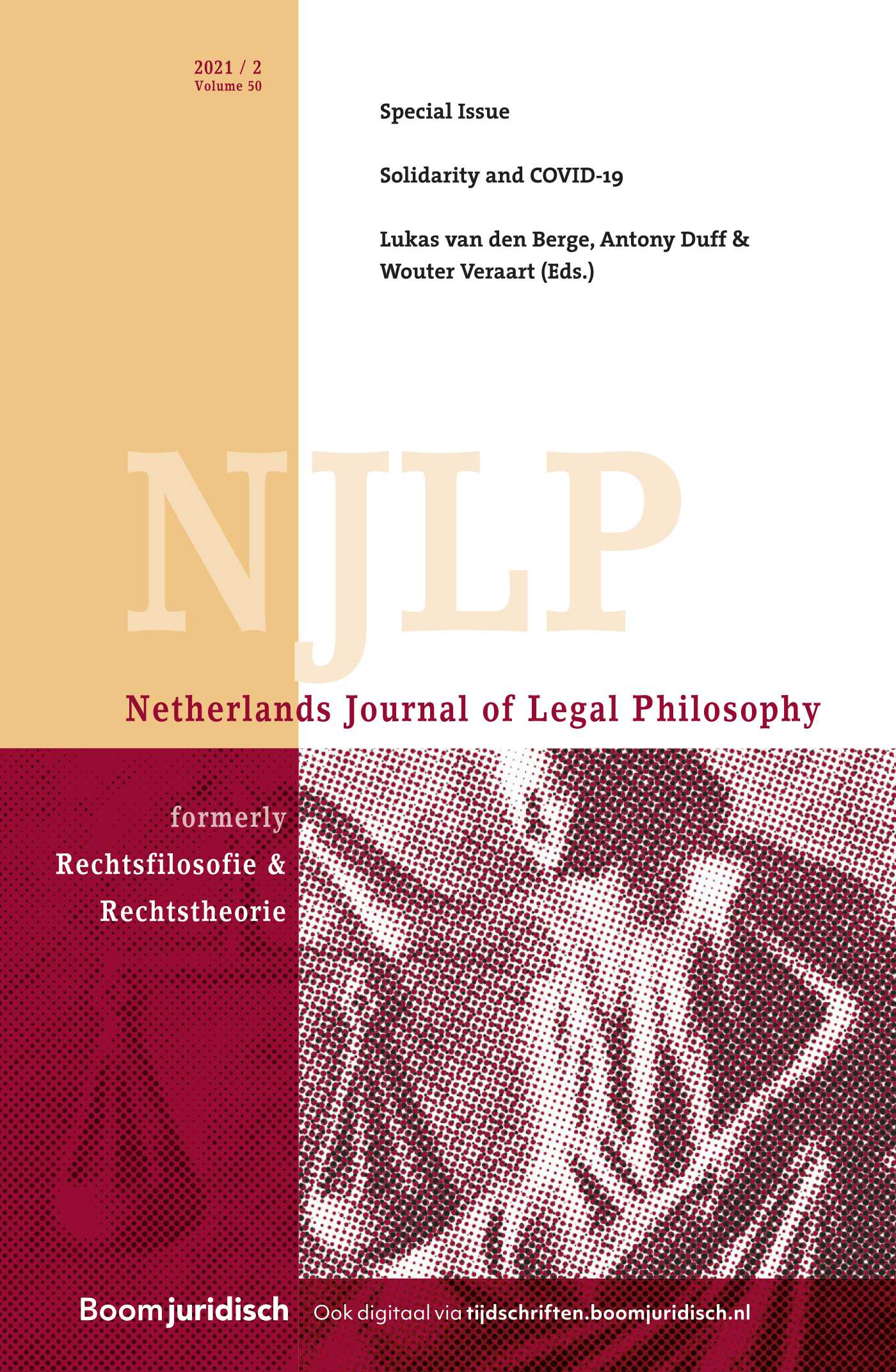|
Two waves of democratization define the post-Cold War era of globalization. The first one saw democracies emerge in post-communist countries and post-Apartheid South Africa. The current wave began with the uprisings in the Middle East. The first focused on the formal institutions of the market and the liberal state, the second is participatory and rooted in collective action. The individualistic conception of freedom and democracy that underlies the first wave is false and fetishistic. The second wave shows democracy’s moral appeal is the commitment to equal participation in determining the terms and conditions of social life. Freedom, thus, requires collective action under conditions of equality, mutual recognition, and respect. |


Netherlands Journal of Legal Philosophy
About this journalSubscribe to the email alerts for this journal here to receive notifications when a new issue is at your disposal.
| Editorial |
|
| Authors | Carel Smith and Derk Venema |
| Author's information |
| Article |
|
| Keywords | democracy, radical freedom, free market economy, consumerism, collective action |
| Authors | Steven L. Winter |
| AbstractAuthor's information |
| Discussion |
|
| Keywords | democracy, we, world, self-government, democratic impulse |
| Authors | Evert van der Zweerde |
| AbstractAuthor's information |
|
Which human material forms the real basis of a democratic polity, i.e. of the preconditions of a ‘we’ that inhabits a ‘world’? How is a political ‘we’ related to the ‘we’ that is created by systemic processes of subjectivization? These questions presents themselves with new relevance in a ‘globalized’ world, in which democratic spurts and waves spread from other parts of the world to the West, and in which the liberal-democratic rule of law state appears to be undermining its own moral preconditions. The real task ahead is to find out what ‘we’ denotes politically. |
| Discussion |
|
| Keywords | globalisation, civic tradition, Enlightenment, free-market economy, autonomy |
| Authors | Tinneke Beeckman |
| AbstractAuthor's information |
|
Can globalisation lead to more democracy? And if so, what concept of freedom lies at the basis of this development? The ideal of liberal freedom, supposedly exercised by the autonomous, rational individual is no longer tenable. Finding a new way of interpreting self-rule beyond self-interested choice has become a crucial aspect of regenerating democratic spirit. This paper formulates three comments on Winter’s paper. The first comment concerns the resemblance between the attitudes of consumers and voters. A second comment reflects on the positive heritage of the Enlightenment. A third comment focuses on the recent Tahrir Square protests and reflects on the republican civic tradition. |
| Discussion |
|
| Keywords | Enlightenment universalism, self-governance, freedom, moral point of view, political participation |
| Authors | Ronald Tinnevelt |
| AbstractAuthor's information |
|
Winter’s criticism of the conventional account of freedom and democracy is best understood against the background of the history of Enlightenment critique. Winter claims that our current misunderstanding of freedom and self-governance is the result of the strict dichotomy between subject and object. This paper critically reconstructs Winter’s notion of freedom and self-governance which does not adequately address (a) the details of his anti-collectivist claim, and (b) the necessary conditions for the possibility of a moral point of view. This makes it difficult to determine how Winter can distinguish between freedom and lack of freedom, and to assess the limited or radical nature of his critique of Enlightenment universalism. |
| Discussion |
|
| Keywords | democracy, public sphere, civil society, Arab Spring, feminism |
| Authors | Judith Vega |
| AbstractAuthor's information |
|
Steven Winter’s argument is premised on a sharp contrast of individualist and social revolutions. I elaborate my doubts about his argument on three accounts, involving feminist perspectives at various points. First, I take issue with Winter’s portrayal of liberal theory, redirecting the focus of his concern to economic libertarianism rather than liberalism, and arguing a more hospitable attitude to the Kantian pith in the theory of democracy. Secondly, I discuss his conceptualization of democracy, adding the conceptual distinction of civil society and public sphere. Thirdly, I question his normative notion of socially situated selves as having an intrinsic relation to social freedom. I moreover consult cultural history on the gendered symbolics of market and democracy to further problematize Winter’s take on either’s meaning for social freedom. |
| Discussion |
|
| Authors | Steven L. Winter |
| Abstract |
|
In this reply, Steven L. Winter adresses his critics. |

 Issue 3
Issue 3